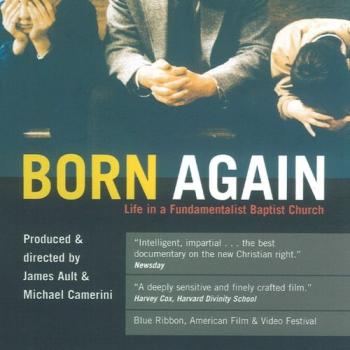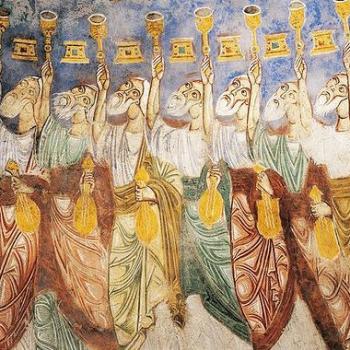What Are “Miracles” and Is Belief in Them Contrary to Science?
It seems the word “miracle” is being stretched out of shape. I hear it all the time on TV. I have developed the view that there are three meanings (uses) of the word “miracle” in today’s American culture: 1) something surprising to an individual or small circle of people, 2) something truly amazing to a large number of people, 3) something whose only cause could be God (or possibly some other supernatural power). I will give an example of each one.
Number “1” is exemplified by a person unexpectedly receiving a gift he or she thought would never be received, perhaps due to its cost. “It’s a Christmas miracle!” Number “2” is exemplified by the safe “landing” of an airliner in the Hudson River as depicted in the movie “Miracle on the Hudson” starring Tom Hanks. Notice that in both cases nothing supernatural is thought to have occurred. Number “3” is exemplified by…by what? Well, it WOULD BE exemplified by, say, a truly dead person coming back to life. By “truly dead” I mean brain dead and with somatic, physical decomposition.
It seems to me that, for the most part, only “3” is a true miracle and is what is meant by “miracle” when whether miracles happen and whether belief in them is reasonable is debated. The first two uses of “miracle” are popular, not technical. I suspect that at least four out of five utterances of “miracle” in popular culture and “Umgangsprache” (ordinal street talk) refer to events that fit categories “1” and “2.”
Especially in academic lingo, when arguments are had about “belief in miracles,” number 3 is intended. Only it is controversial.
I earned both a master’s degree and a PhD from Rice University in Houston, Texas, a bastion of secular scientism. Often, even by students in the Religious Studies Department, belief in “real miracles” was sneered at and ridiculed as contrary to modern science. Then I spent a year studying with German Lutheran theologian Wolfhart Pannenberg who believed in the bodily resurrection of Jesus Christ as a real historical event, including the empty tomb. Then I taught theology (my first full time teaching position) at Oral Roberts University. The founder-president’s motto was “Expect a Miracle!” And yet, during my two years there, I never saw a real miracle. Then I taught at two Baptist institutions of higher education, Bethel College and Seminary (now Bethel University) and Baylor University. At both I encountered professors and even one dean who told me they did not believe in miracles and they meant of the third kind.
I had just arrived in Waco, Texas to teach theology at Baylor’s George W. Truett Theological Seminary when a recently retired Baylor history professor wrote a column about miracles in the local newspaper. In the column he argued that Christians must give up belief in miracles because believing in miracles is unscientific. I wrote a response which was published and received a phone call from a friend who taught in the philosophy department warning me about speaking against the retired professor because “even some of the regents are his former students and admirers.” Huh. I was glad I had tenure.
I do not think someone can be a Christian and deny miracles of the third kind because of the resurrection of Jesus Christ. Belief in the bodily resurrection (whatever its precise nature) and empty tomb is part and parcel of Christianity. A Christianity without the resurrection (e.g., Rudolf Bultmann’s) is inauthentic.
I think two problems have created much of the skepticism about miracles. First, philosopher David Hume famously defined a miracle as a violation of a natural law. And he argued that for any given event there is always a better explanation than “miracle.” Second, many celebrity scientists, speaking more as philosophers than scientists, have asserted that modern science and miracles are incompatible. Many teachers of science have conveyed that message to students.
Philosopher Thomas Reid responded to Hume by pointing out that natural laws are only regularities of God’s general providence, God not being only transcendent but also immanent. According to Reid, echoed later by C. S. Lewis in his book “Miracles,” a miracle is not a violation of a natural law as if God exists outside of nature only, but a miracle is a divine suspension of the usual workings of nature (natural laws being the normal and usual workings of God’s general providence and continuing creative activity).
But I was a bit stumped when lecturing on miracles and science at a Christian university. A science professor raised his hand and asked whether it would not be the case that a miracle, even such as Reid and Lewis described, would leave behind scientifically detectable consequences—sort of like a “ripple effect.” I assumed he was assuming an absolute uniformity of nature and a possible technology that could (someday) detect the effects of a miracle afterwards.
I did not have an adequate answer to him at the time and probably mumbled something that didn’t satisfy him. Today, after thinking about his question for a long time, I would say to him that I do not believe nature is absolutely uniform; there is true novelty in nature. An example is a genuinely, libertarian free choice acted upon. Second, I would tell him that I don’t think there ever could be a technology that could detect the after effects of every contingent and novel event within nature. I think he and I were/are thinking of “nature” very differently. Is his view necessary to modern science? What about quantum mechanics? At the time we did not have time to discuss his question in any depth or detail which is why I bring it up here. What say you?
As I have said here before, Craig Keener (Asbury Theological Seminary) has published books of case studies of verifiable miracles of the third kind. My African students and acquaintances testify of having seen real miracles and most, if not all, of them are well aware of modern science.
Is the bias against belief in miracles possibly more one of philosophy than of science itself? And yet, many celebrity scientists talk about miracles as if belief in them is obviously contrary to modern science.
Two questions, then: 1) Is belief in miracles (at least one, the resurrection of Jesus Christ) necessary for authentic Christianity, and 2) Is belief in miracles contrary to modern science?
*Note: If you choose to comment, make sure your comment is relatively brief (no more than 100 words), on topic, addressed to me, civil and respectful, not hostile or argumentative, and devoid of pictures or links.*


















